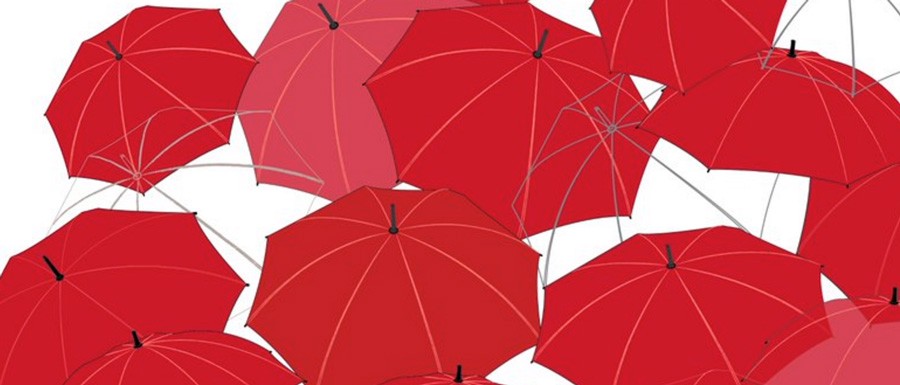
Sex workers must not be left behind in the response to COVID-19
GENEVA, 8 April 2020—UNAIDS: The COVID-19 pandemic, as with other health crises, exposes existing inequalities and disproportionately affects people already criminalized, marginalized and living in financially precarious situations, often outside social protection mechanisms.
During these difficult times, the Global Network of Sex Work Projects (NSWP) and UNAIDS wish to draw attention to the particular hardships and concerns facing sex workers globally and are calling on countries to ensure the respect, protection and fulfilment of sex workers’ human rights.
As a result of the COVID-19 pandemic, sex workers all over the world are experiencing hardship, a total loss of income and increased discrimination and harassment. The criminalization of various aspects of sex work in the majority of countries serves to magnify the already precarious situation of sex workers in the informal economy. As sex workers and their clients self-isolate, sex workers are left unprotected, increasingly vulnerable and unable to provide for themselves and their families.
Sex worker-led organizations from all regions are reporting a lack of access to national social protection schemes and exclusion from emergency social protection measures being put in place for other workers, particularly where sex work is criminalized. Whenever and wherever possible, sex workers are responsibly self-isolating in response to governments’ calls. However, when they are excluded from COVID-19 social protection responses, sex workers are faced with putting their safety, their health and their lives at increased risk just to survive.
NSWP and UNAIDS are furthermore concerned at reports of punitive crackdowns against sex workers, resulting in the raiding of homes, compulsory COVID-19 testing, arrest and threatened deportation of migrant sex workers.
UNAIDS calls on countries to take immediate, critical action, grounded in human rights principles, to protect the health and rights of sex workers. Measures should include:
- Access to national social protection schemes for sex workers, including income support schemes.
- An immediate firewall between health services and immigration authorities in order to ensure that migrant sex workers can access health services.
- Emergency financial support for sex workers facing destitution, particularly migrants who are unable to access residency-based financial support.
- An immediate end to evictions and access to appropriate emergency housing for homeless sex workers.
- Stopping raids on sex workers’ homes and sex work premises and ensuring that all measures to protect public health are proportionate.
- An immediate halt to arrests and prosecutions for sex work-related activity, moving away from punitive measures and criminalization towards reaching and serving those most in need.
- An immediate end to the use of criminal law to enforce COVID-19-related restrictions, including forced COVID-19 testing and related prosecutions.
- Automatic extensions on visas due to expire as travel restrictions tighten. Immigration detention systems must support detainees in safe accommodation.
- The engagement of sex worker communities in responses—the meaningful involvement of sex worker-led organizations in emergency public health planning groups.
UNAIDS, as ever, stands ready to support countries in the implementation of the above recommendations
WHAT IS PANCAP?
PANCAP is a Caribbean regional partnership of governments, regional civil society organisations, regional institutions and organisations, bilateral and multilateral agencies and contributing donor partners established on 14 February 2001. PANCAP provides a structured and unified approach to the Caribbean’s response to the HIV epidemic, and coordinates the response through the Caribbean Regional Strategic Framework on HIV and AIDS to maximise efficient use of resources and increase impact, mobilise resources and build the capacity of partners.
What are the Global AIDS Strategy 2021–2026 targets and commitments?
If targets and commitments in the strategy are achieved:
- The number of people who newly acquire HIV will decrease from 1.7 million in 2019 to less than 370 000 by 2025
- The number of people dying from AIDS-related illnesses will decrease from 690 000 in 2019 to less than 250 000 in 2025.
- The goal of eliminating new HIV infections among children will see the number of new HIV infections drop from 150,000 in 2019 to less than 22,000 in 2025.
What are the 95-95-95 Targets for ending AIDS?
- 95% of People Living with HIV know their HIV status;
- 95% of people who know their status on treatment; and
- 95% of people on treatment with suppressed viral loads.
HELPFUL LINKS:
Global AIDS Strategy 2021–2026, End Inequalities, End AIDS
https://pancap.org/pancap-documents/global-aids-strategy-2021-2026-end-inequalities-end-aids/
Caribbean Regional Strategic Framework on HIV and AIDS (CRSF) 2019-2025
https://pancap.org/pancap-documents/caribbean-regional-strategic-framework-2019-2025/
